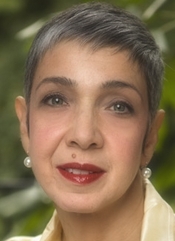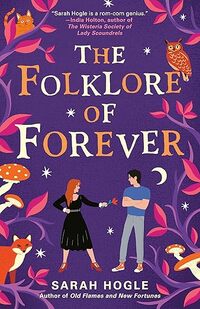I categorize every single name I hear as better or worse than mine; I’ve been
doing this pretty much my entire life. I’d say ninety-nine percent fall into the
better camp but once in while, I come across a name that I actually think is
worse. (More on this later.) I have to say that I come by this name honorably
enough: I was born in Chadera, Israel, where if the name Yona was not the most
common of names, at least it was not freakish. But my parents moved back to the
United States in 1958 and it did not occur to them to Anglicize my name; they
had started life as, respectively, Hiram and Mildred, yet kept their Hebrew
names—Chayym and Malcah—when they returned.
So what was it about this name that was so objectionable? It was always
confused or mangled: Yola, Yoda, Ona and Zona were a few of its many ungainly
permutations. And coupled with my unusual last name, Zeldis, made for an even
more confused reaction. When I entered a new school in fourth grade, my teacher
looked at the class list and said, “What is Yona Zeldis?” I had to raise my
hand and say, “It’s me.” She thought it was a misprint and that it should
perhaps have been Zelda Yonis; no such luck though. The McDonough part I married
in 1985, and when I write, I use the damn whole thing.
I did have a brief moment in college in which I sought to use my middle name
Miriam and filled out all my official school documents with that name; my
diploma reads Miriam Zeldis. But I did not have the conviction, foresight or
both to make the switch; I now ardently wish I had. So here, in my sixth
decade, with six novels, twenty-six books for children, two essay collections
and scads of published articles, essay and short fiction to my name—this
unwieldy, two-headed calf of a name—I have made a grudging peace with it. The
name may be awful, but it is mine.
Because of my heightened name sensitivity, I am almost obsessive about the
naming of anyone else in my life: children, dogs and even (especially?) my
fictional characters. When it came to my kids, I opted for James and Katherine:
gender specific, Anglo, easy to say, to spell, to get. I inched out a tad on
the middle names—Redden for my son, because that was my husband’s mother’s
maiden name, and Constance for my daughter, because it was the name of my dear
friend and her godmother.
As for the characters that populate my novels, I love the process of bestowing
their names and devote a lot of time to it. The names are not always ones I
like; that would be too easy. No, the names have to fit the character—his or her
gender, religion, nationality and class. (And names convey so much about a
character; we perceive Katherine Anne Worthington as distinct from Sadie
Mossbacher without another line of description about either.) Also the names
have to speak to me in some ineffable way—each new name is like a poem to my
ears and I have become highly attuned to its music.
So what about the names that I consider to be worse than mine? Because there is
that one percent. When I encounter such a name, I feel an enormous amount of
pity and tenderness, not only for the name itself, but also for its hapless
owner. I know all too well what it’s like to go through life with an odd and
ungainly name and I feel their pain. A dear friend had an uncle named Oscar
Kornblatt—horrors! The first syallable,“Korn,” suggested not the tasty yellow
ears but the affliction of the toes, and second, “blatt,” had the misfortune to
rhyme with splat. And the combination of the two induced shudders. But this name
was paradoxically dear to me because of its very awfulness and I gave it to
character I loved in my first novel, THE FOUR
TEMPERAMENTS.
I chose the names in my fifth novel, TWO OF A
KIND, with the same kind of attention. The male protagonist, Andrew Stern,
had the sort of Jewish boy name I was familiar with from my own childhood. Andy
is a high-risk OB/GYN and he’s a smart, driven and essentially decent man,
though at moments he can be overbearing and obnoxious. I felt I knew his type
well and I found a name that put me in mind of it. For the woman he meets, the
name had to be Christina. He’s Jewish and she’s not; this religious difference
is one of the issues they must overcome to build a life together. Christina was
about as clear and emphatic as I could get—can’t miss the reference to Christ in
there, can you? Her last name, Connelly, is Irish because she comes from the
kind of working class Irish family that used to make up the backbone of Park
Slope, where she’s lived all her life. Her daughter Jordan and Andy’s son
Oliver have names that are reflective of their generation; I knew of no one,
other than characters in books or in movies, who had such names when I was
growing up, whereas my teen-aged daughter and twenty-something son both have
friends and acquaintances with these names. Andy’s mother, Ida, got her name
from my great-aunt; I wanted a name that suggested her European Jewish roots and
felt that was the one.
In my sixth novel, YOU WERE MEANT FOR ME, no one knows the name of baby found
in the subway station; her mother did not provide her with one. But Miranda
Berenzweig (how do you like that last name? It belonged to a boy I knew in
college and I have waited decades for the chance to use it!), who hopes to adopt
her, names her Celeste. Miranda chose the name to honor her grandmother. But it
also has the association with celestial—heavenly—which seemed fitting for this
child, who, though abandoned, managed to bestow an angelic grace on everyone in
her orbit.
The naming of these characters and others has given me such satisfaction and
delight. There is something so grand, and even Biblical in the process—think of
Adam: Out of the ground the Lord God formed every beast of the field and every
bird of the air, and brought them to Adam to see what he would call them. And
whatever Adam called each living creature, that was its name. So Adam gave names
to all cattle, to the birds of the air, and to every beast of the field.
I have an inkling of how Adam must have felt, and I can tell you, it must have
been grand.

Yona Zeldis McDonough is the author of six novels; her seventh, The House on Primrose Pond, will be out
from New American Library in February, 2016. In addition, she is the editor of the essay collections The
Barbie Chronicles: A Living Doll Turns Forty and All the Available Light: A Marilyn Monroe Reader. Her short
fiction, articles and essays have been published in anthologies as well as in numerous national magazines and
newspapers. She is also the award-winning author of twenty-six books for children, including the highly
acclaimed chapter books, The Doll Shop Downstairs and The Cats in the Doll Shop. Yona lives in Brooklyn, New
York with her husband, two children and two noisy Pomeranians.
Website Facebook | Twitter
A compelling novel about one woman’s search for the truth from the author of YOU WERE MEANT FOR ME.
After suffering a sudden, traumatic loss, historical novelist Susannah Gilmore decides to uproot her life—and
the lives of her two children—and leave their beloved Brooklyn for the little town of Eastwood, New Hampshire.
While the trio adjusts to their new surroundings, Susannah is captivated by an unexpected find in her late
parents’ home: an unsigned love note addressed to her mother, in handwriting that is most definitely not her
father’s.
Reeling from the thought that she never really knew her mother, Susannah finds mysteries everywhere she looks:
in her daughter’s friendship with an older neighbor, in a charismatic local man to whom she’s powerfully
drawn, and in an eighteenth century crime she’s researching for her next book. Compelled to dig into her
mother’s past, Susannah discovers even more secrets, ones that surpass any fiction she could ever put to
paper...
2 comments posted.


 © 2003-2025 off-the-edge.net
all rights reserved Privacy Policy
© 2003-2025 off-the-edge.net
all rights reserved Privacy Policy